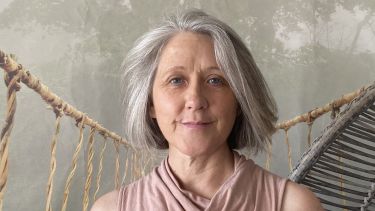Part-time distance learning has allowed me to still have a full time job but study at the same time

Is there a reason you chose to study Neuroscience and Neurodegeneration, and why did you choose Sheffield in particular?
“I decided to go back to university at the age of 44. I chose to study Neuroscience and Neurodegeneration for a couple of reasons. The first is that in the last few years quite a few of my friends have had parents diagnosed with some form of neurodegenerative disease. This brings it closer to home. I felt by completing a masters in this field I was doing something to help.
“The second reason is that it would potentially help me contribute more to my job. I work for a biotech company in their data governance team, and I now have a greater understanding of the neuroscience research the company does and the products we offer. I have always liked learning, improving my skill set and this part time MSc was an ideal way to do that.
“I chose Sheffield in particular as the course was online and the timeline for it appeared manageable. The layout and content of the course looked well-structured and really appealed to me.”
What did you enjoy most about the course?
“I enjoyed the structure of the course and the way you work through the modules online at your own pace, but with guidance. There was a lot of flexibility - you could watch the lectures whenever it was convenient. The course helped develop my knowledge of neurodegenerative disease, my awareness of how potential new therapies are advanced and my scientific writing skills.
“I like the varied assessments too. They weren’t always writing an essay; there were posters to design, talks to create, research grant applications to assess and then a thesis in the last part of the course. I was spoilt for choice over which one to work on.”
How did the part-time distance learning aspect of the course help you to work and study?
“Part-time distance learning allowed me to still have a full time job but study at the same time. The academic staff were always quick to respond to any queries and welcome any questions and feedback.
“The flexibility of having access to the lectures and content when you need them also worked well. I think if it was a set time each week it would not have worked for me. Working remotely for my job for many years helped me keep the discipline needed to complete an online course.”
Tell us how you imagine the masters course will inform your current career?
“Completing an MSc in Neuroscience and Neurodegeneration was more about feeling I’m contributing to the bigger picture, rather than to further my career. That said, while I am very settled in my job, the company has expanded so much since I joined many years ago, and the knowledge I’ve gained on the course has helped me understand the neuroscience research taking place in my company.
As part of my role, I specialise in data regarding partnership products and bespoke requests, including antibodies, kits, proteins, biochemicals, all sorts. I now see why we have the kinds of products we do.
Belle Kennett
MSc Neuroscience and Neurodegeneration
“If you are looking to progress your career, this course is an ideal way to gain up to date knowledge whilst still working your job.”
What would you say to a student thinking about studying the Neuroscience and Neurodegeneration course at Sheffield?
“I would recommend the University of Sheffield as all the people I have interacted with have been very professional and supportive. The course is well set out with manageable timelines. The Sheffield Institute of Translational Neuroscience (SITraN) itself is amazing; the amount of work that is going on in this field is phenomenal and the staff at SITraN are truly leading experts in their field.
“If you’re concerned about the level of scientific knowledge required, I’d recommend reaching out to the department for advice. My degree was in Zoology, but after speaking to Dr Jon Wood, the course lead, he felt confident that with a little bit of extra reading about genetics, I’d be at the right level scientifically to study the MSc.”

Masters study discovery afternoon
See where a Sheffield masters could take you with our on-campus event. Get expert advice, take a campus tour and chat to current students.


